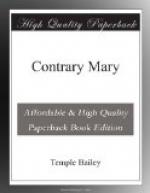Once in four years the capital city takes on a supreme holiday aspect. In other years there may be parades, in other years there may be pageants—it is an every-day affair, indeed, to hear up and down the Avenue the beat of music, and the tramp of many feet. There are funerals of great men, with gun carriages draped with the flag, and with the Marine Band playing the “Dead March.” There are gay cavalcades rushing in from Fort Myer, to escort some celebrity; there are pathetic files of black folk, gorgeous in the insignia of some society which gives to its dead members the tribute of a conspicuousness which they have never known in life. There are circus parades, and suffrage parades, minstrel parades and parades of the boys from the high schools—all the display of military and motley by which men advertise their importance and their wares.
But the Inauguration is the one great and grand effort. All work stops for it; all traffic stops for it; all of the policemen in the town patrol it; half the detectives in the country are imported to protect it. All of fashion views it from the stands up-town; all of the underworld gazes at it from the south side of the street down-town. Packed trains bring the people. And the people are crowded into hotels and boarding-houses, and into houses where thresholds are never crossed at any other time by paying guests.
To the inauguration of 1913 was added another element of interest—the parade of the women, on the day preceding the changing of presidents. Hence the red and white and blue of former decorations were enlivened by the yellow and white and purple of the Suffrage colors.
Cousin Patty wore a little knot of yellow ribbon when Porter met her at the station.
Porter was not inclined to welcome any cousin of Roger Poole’s with open arms. But he knew his duty to Mary’s guests. He had offered his car, and had insisted that Mary should make use of it.
“For Heaven’s sake, don’t make me utterly miserable by refusing to let me do anything for you, Mary,” he had said, when she had protested. “It is the only pleasure I have.”
Cousin Patty, in spite of Porter’s preconceived prejudices, made at once a place for herself. She gave him her little bag, and with a sigh of such infinite relief, her eyes like a confiding child’s, that he laughed and bent down to her.
“Mary Ballard is in my car outside. I didn’t want her to get into this crowd.”
Cousin Patty shuddered. “Crowd! I’ve never seen anything like—the people. I didn’t know there were so many in the world. You see, I’ve never been far away from home. And they kept pouring in from all the stations, and when I reached here and stood on the steps of the Pullman, and saw the masses streaming in ail directions, I felt faint—but the conductor pointed out the way to go, and then I saw your—lovely head.”
She said it so sincerely that Porter laughed.




